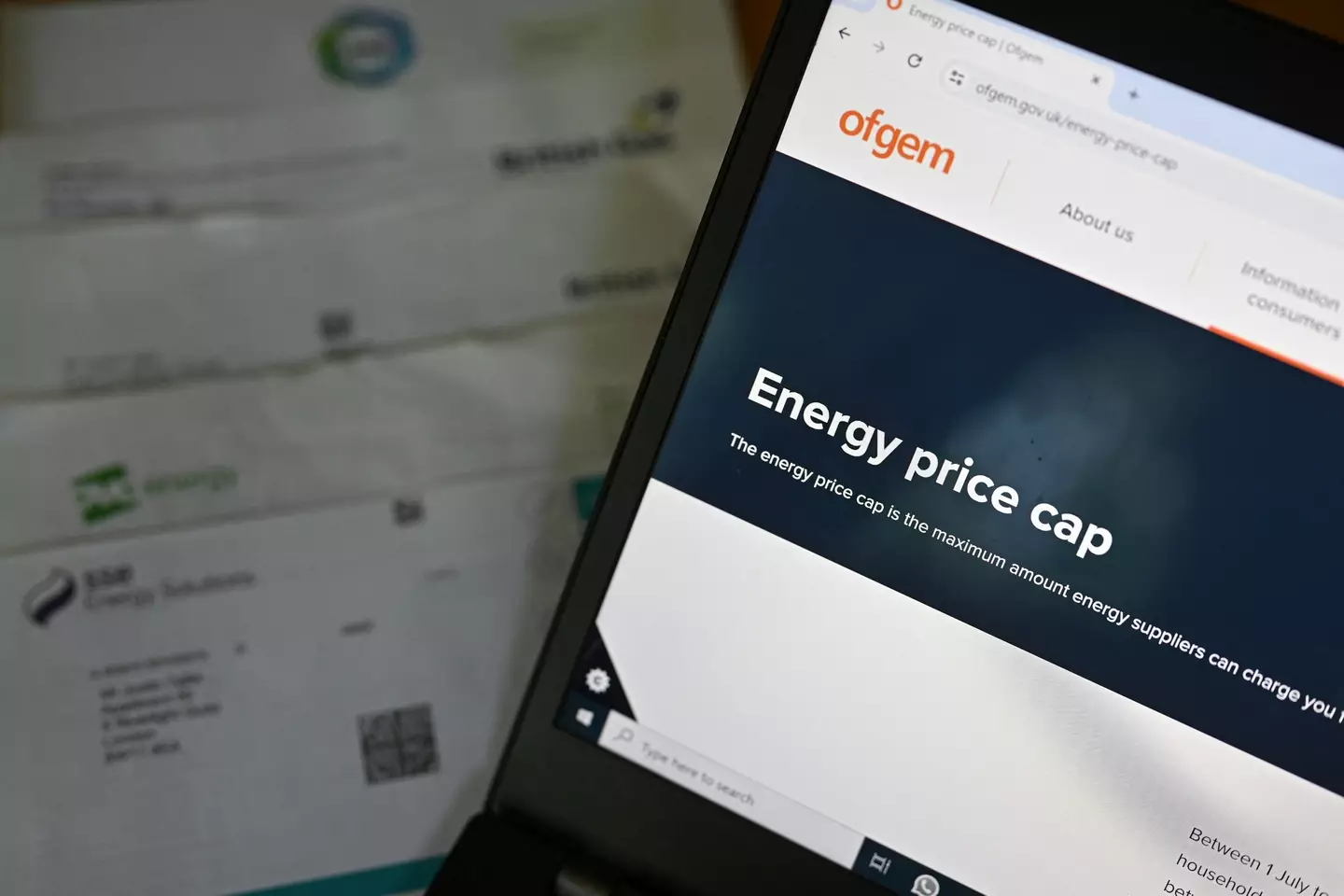
British residents can expect to feel a further pinch this winter as The Office of Gas and Electricity (Ofgem) confirmed the average household energy bill is due to increase.
Ofgem, the energy regulator, works to determine the maximum amount of money utility companies such as Scottish Power, British Gas and EDF Energy can charge their customers.
This limit is more commonly known as the ‘energy price cap’.
The cap—initially introduced in 2019—is in play to protect billpayers from being dramatically overcharged for energy usage and is usually increased every three months.
Advert
While suppliers cannot charge more than the price cap, they may decide to charge you less.
On Friday (23 August) Ofgem announced a new price cap that could cause a dramatic spike in our energy bills, but how much will they surge and why?

Why are our energy bills increasing?
Ofgem claims one of the main reasons behind the price hike is that the wholesale price of gas swelled.
The company reports that this is due to the ‘rise in geopolitical tensions’ between Russia, Ukraine and the Middle East as well as extreme weather events ‘driving competition for gas’.
Moreover, network and policy costs have allegedly caused the price cap hike.
How much are energy bills going to increase by?
Ofgem confirmed today that average household bills will go up by a staggering 10 percent in the coming months.
The regulator states that the energy cap would officially rise from £1,568 to £1,717 when it comes into effect on 1 October.
The rate for electricity will be capped at 24.50p per kilowatt-hour.
This increase means that residents of England, Scotland, Wales and Northern Ireland could face higher bills in the coming months, depending on how much gas and electricity they use.
On 31 December, Ofgem is expected to reveal a new cap.

Advice from Ofgem’s chief executive regarding the price cap increase
Jonathan Brearley, the chief executive of Ofgem, said: “We know that this rise in the price cap is going to be extremely difficult for many households.
“Anyone who is struggling to pay their bill should make sure they have access to all the benefits they are entitled to, particularly pension credit, and contact their energy company for further help and support.”
He added that consumers should try and ‘shop around’ for a better deal and consider signing up for a fixed-rate tariff that could save money in the long run.
What does the Labour government say about the energy hike?
Ed Miliband, Secretary of State for Energy Security and Net Zero, has also had his say on the situation, complaining that the price hike will be ‘deeply worrying news’ for many families across the UK.
“The rise in the price cap is a direct result of the failed energy policy we inherited, which has left our country at the mercy of international gas markets controlled by dictators,” he stated on X, formerly known as Twitter.
“The only solution to get bills down and greater energy independence is the Government’s mission for clean, homegrown power.
“That’s why we have hit the ground running, lifting the onshore wind ban, consenting unprecedented amounts of solar power and setting the largest-ever budget for our renewables auction.”
Ed added that the Labour government is currently doing ‘everything in [its] power to protect billpayers’, and plans to reform the regulator to make it a ‘strong consumer champion’ that will save families money in the long run.
Topics: Money, Cost of Living, Real Life
